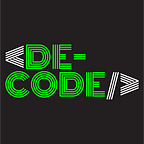Quantum Computing to Quantum Supremacy
If you have been following our blogs, you might already have some idea about quantum computers and what they can do. We have already explained how they work and what they can do, if you have any doubts you can click on the hyperlinked text to read our coverage on this topic.
Recently, quantum computing has been in the limelight. Publications like Financial Times, Technology Review, CNET, Facebook, Reddit, Twitter, etc. are claiming that a group at Google has now achieved ‘quantum computational supremacy’ with a 53-qubit superconducting device. If this is true, it will be a historic moment. There’s a lot of media hype around this announcement. However, most of it is misleading.
Scott’s Supreme Quantum Supremacy FAQ is a blog by Scott Aaronson, an American Computer Scientist, which cuts through the misinformation and explains what is actually happening. To know what’s happening here’s a simplified version.
What’s the fuss?
Google has managed to build a 53-qubit Quantum Computer which can solve a contrived problem in a fraction of a second. Whereas huge data-centres full of normal computers will take months to do the same.
To arrive at the conclusion, the quantum computer is simply asked to apply a random (but known) sequence of quantum operations. If you are wondering they are going ahead with known operations, it is simple. It is not because they intrinsically care about the result and to get the result they want, they are using known operations. The goal is to prove that it can beat a classical computer at some well-defined task.
Google is rechecking with massive normal-computer computation to give a confirmation that its quantum computer actually produced the expected result. By running a huge cluster of classical cores for approx. a month, you can eventually verify the outputs that your QC produced in a few seconds. You can also acknowledge that QC was many orders of magnitude faster.
Why does it matter?
It is still not a huge breakthrough in the field of quantum computing, but it is definitely something. E.g., Nobody believed that objects heavier than air could fly. This belief was put to rest after the Wright brothers demonstrated their first flight. However, while it wasn’t a huge success, it was enough to prove that objects heavier than air can actually fly!
Similarly, the QC sceptics can calm down as this announcement will prove the importance of all the billions of dollars spent over the past 20+ years. This important announcement will help give some respect to all the people associated with QCs and who have worked tirelessly to make it a reality, and for the terrifying engineering that’s needed to make it possible and for the future.
What is Quantum Computational Supremacy?
Often referred to as ‘quantum supremacy’ the term refers to the use of a quantum computer to solve well-defined sets of problems that could take orders of magnitude longer to solve with any currently known algorithms using classical computers. The term ‘quantum supremacy’ was coined by John Preskill in 2012.
The main focus is to be sure that the problem was solved quantumly and it should be provable classically. Hence, to establish quantum supremacy.
Has Google achieved classical supremacy? What does it mean?
The QC devices that are being built have 50–100 qubits and no error-correction. It doesn’t mean that now ‘no code is uncrackable’ to break the RSA Cryptosystem. It would require several thousand logical qubits with known error-correction methods, that could easily translate into millions of physical qubits, and those probably of a higher quality than any that exist today. Nobody is close to that and nobody has any idea how long that would take or if that is even possible. Even if we build a QC with 1000s of qubits, it is very likely that the qubits would lose the data before we could read the output due to decoherence, that’s why we need ‘quantum error-correction’.
Even in the hypothetical future with scalable, error-corrected QCs, they can allegedly crack only some codes, not all of them. Basically, it is no longer open to QC sceptics to scoff the quantum reality. The real issue all along has always been quantum error-correction.
What’s next?
The next milestone could be to use a programmable QC with 50–100 qubits to do some useful quantum calculations. After that is achieved, it would be great to demonstrate the use of quantum error-correction, to keep an encoded qubit alive for longer than the underlying physical qubits remain alive. However, the Yale group has already achieved quantum error-correction ‘beyond the break-even point’ but in a bosonic system rather than superconducting qubits. Perhaps to achieve quantum computational supremacy and useful quantum error-correction in the same system can be our next goal.
This was a brief explainer about the recent events. Stay tuned for more such blogs and we promise to simplify it to be understood by anyone. Till then, keep following DeCode! :)
